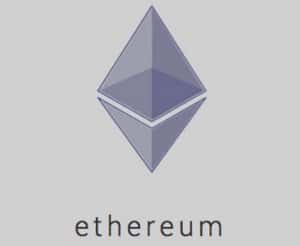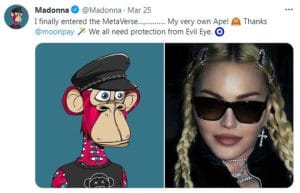What is DeFi? Decentralized fintech has the potential to be the biggest disruptor of the finance sector since quills were first used to keep accounts. Decentralization could change the entire way financial services operate and are regulated. Depending on who you talk to, it could either be easier, faster and cheaper, or it could descend in to anarchy. There are signs everywhere that governments want to issue and control their own crypto currencies, which is hardly a move to decentralization. Must DeFi scale faster to avoid obstacles?
30 years of fintech development
Fintech is an abbreviated phrase for financial technology that has been used for about 30 years, since the early 1990s. Although eBay launched in 1995, and PayPal in 1998, innovation within existing financial service providers was largely thwarted by the centralized control of the financial services sector. A prevailing corporate mindset merely digitized existing analogue procedures to simply provide the same slow services at expensive costs with fewer employees. Delivering real customer benefits didn’t seem to matter too much. Sticking to the existing rules set by regulatory bodies caused further unfulfilled potential.
The arrival of smartphones in the 2010s enabled “banking on the go.” A first wave of disruptors entered wide public consciousness and took off. Digital natives were also keen to embrace anything that set them apart from the financial establishment that caused the 2008 global financial crisis that began in the US sub-prime lending market.
At almost the same time, Bitcoin was created in the aftermath of the 2008 financial crisis, in 2009. Its prominence as the first and the largest crypto blocks out for many people the fact that blockchain technology can deliver and fulfill much more than online currencies that are outside the control of national central banks.
 Since 2013, even though Ethereum was created as a way to use blockchain technology in many ways beyond a digital currency, it has gone on to be the second biggest crypto. It could also be the basis of fairer voting systems; universal basic income; personal identities with immutable education qualifications and health records; verify property ownership and speed up ownership transfer; store legal documents such as wills; record urban planning and public-works projects, with “building passports” itemizing building materials to ensure maximum recycling in the future.
Since 2013, even though Ethereum was created as a way to use blockchain technology in many ways beyond a digital currency, it has gone on to be the second biggest crypto. It could also be the basis of fairer voting systems; universal basic income; personal identities with immutable education qualifications and health records; verify property ownership and speed up ownership transfer; store legal documents such as wills; record urban planning and public-works projects, with “building passports” itemizing building materials to ensure maximum recycling in the future.
Blockchain also enables smart contracts: payments are made (or other actions are triggered) when pre-set targets or actions are achieved. With the details held on a decentralized blockchain that cannot be tampered with – who needs centralized regulatory bodies to slow down proceedings with checks and balances, or payment facilitators (e.g. banks) who will take a slice? Processes then can really become easier, faster and cheaper.
Meaningful breakthroughs, or red herrings?
In the recent past, what can look like meaningful breakthroughs can also just seem to fizzle out. 2017 was the year of ICOs (initial coin offerings). According to an article by Bitcoin.com, 80% of the ICOs that appeared on the market were actually scams. Only 8% actually moved on to trade, and only about 2% of the ICOs made it all the way through.
DAOs and NFTs are also integral parts of decentralized finance. An example of a fintech-related DAO (decentralized autonomous organisation) is the Swiss-based company Molecule. It operates on a crowdfunding basis, making funding available to biotech scientists and investors stand to gain shares in patents or intellectual property.
NFT technology could go a lot further than Madonna’s new cartoon, and be a way to record and transfer deeds of property ownership, for example. Though with the amounts of money that governments raise through taxes related to property, what are the chances that this would be allowed to become mainstream outside of some centralized regulatory control? Also, for DeFi to become a tool to confirm and transfer property ownership, the legal system would have to be able to enforce blockchain-based outcomes in the non-blockchain world. That’s not going to happen in a hurry – some elements of the legal profession and mortgage lenders still don’t even accept the use of email!
Most of the public, and regulators, are led by negative headlines
 What sort of DeFi news makes the headlines? A $600 million crypto hack, and Madonna buying a Bored Ape Yacht Club NFT cartoon for a six-figure sum. It prompts the “nay-sayers” to call DeFi “Ponzi schemes,” “too risky,” and demand regulation. Why are the opportunities and the realities so different?
What sort of DeFi news makes the headlines? A $600 million crypto hack, and Madonna buying a Bored Ape Yacht Club NFT cartoon for a six-figure sum. It prompts the “nay-sayers” to call DeFi “Ponzi schemes,” “too risky,” and demand regulation. Why are the opportunities and the realities so different?
Here’s why. DeFi is new and unregulated, and it’s providing access for a few to unimaginable wealth. It is thus attracting many people’s interest – particularly anyone who is a clever trader or an experienced financial engineer. Yuga Labs, the owner of Bored Ape Yacht Club and two of the other biggest NFT brands on the market, has just raised $450 million in funding at a $4 billion valuation. It plans to use the money to build a media empire around NFTs, starting with games and its own metaverse project. DeFi is today’s California Gold Rush.
Will DeFi be given time to fulfill its potential?
Longer-term, supporters of decentralized finance claim blockchain is technologically superior to existing banking systems, which are largely just digitized versions of the previous analogue systems. Most bank transactions, for example, still rely on programs written in COBOL, a computer programming language from the 1960s. Given that crypto is actually created for the internet, it will need an entirely internet-based financial system to support it to its full potential. Andreessen Horowitz is a venture-capital firm that has raised around $3bn to invest in crypto-technology. Marc Andreessen said “Crypto represents an architectural shift in how technology works and therefore how the world works.”
How that DeFi world operates is entered by creating a crypto wallet to store tokens. Creating a wallet gives the owner a unique online identity, which allows them to interact across any decentralized finance application. There’s a lot to be aware of to make considered decisions. What type of wallet, what type(s) of crypto, where to invest/speculate, and what to buy in the metaverse are just a few issues to think about. For some help, we suggest taking a look at two learning platforms, Crypto and DeFi Academy and Uncensored Crypto.
But will a Utopian vision of what decentralized finance could achieve and provide be allowed to develop? China and Russia have banned crypto trading, and are working to develop their own digital currencies. US President Biden has signed an “Executive Order on Ensuring Responsible Development of Digital Assets” in preparation for creating a US central bank digital currency (CBDC).
Cryptos launched and controlled by governments are hardly decentralized. China has experimented with applying expiry dates to its digital currency that force people to spend them. People accused of violating laws based on cc-tv footage have had fines taken from their crypto accounts without any chance to appeal or explain.
Web3 developments could lead to further DeFi innovations, but who will be working on them, and in whose interests? Should we be taking action, where we are allowed to, to protect and maintain decentralization of financial services? What do you think?






